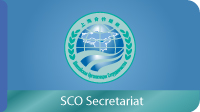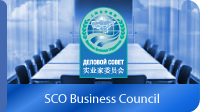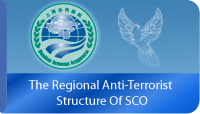|
|
 |
| SCO and Islamic Observer States: Realias, Potential and Prospects |
| 30.09.2009 13:58 |
|
|
|
Alexander Kniazev, Doctor of Historical Sciences, Aza Migranian, Doctor of Economics (Kirghizia)
The present geopolitical scenario for Russia is connected with its active ousting from the South — both in the Caucasian, and Central Asiatic directions. The formed after 1991 post-Soviet states are “propped up” southward by Iran, and a considerable part of security threats comes from Afghanistan and Pakistan, which a priori determines the importance of geopolitical status of these countries for Russia.
Geopolitics — for the multi-ethnic, policonfessional and specific in terms of civilization Russia — reject arguments of strict confessional or civilization solidarity, which means: Russia is not at all doomed to confrontation with the Islamic world.
Under a theocratic government in Iran Russia succeeded in finding in relationship with it a necessary balance, with its political and economic interests being respected.
An important peculiarity of IRI’s historical development during the last decade and a half has become the gradual transformation of its revolutionary components from the extreme radicalism to pragmatic moderate Islamism. Iran’s current commanding elite — regardless of the political orientation (liberals, conservatives, neoconservatives) — successively demonstrates its ability to sufficiently understand the trends and dynamics of its society’s modern development, world economic and political processes, to efficiently enough coordinate internal and foreign-policy vectors.
One of the traditional components of cooperation between Russia and Iran are economic ties. As far back as in the pre-revolutionary period Russia’s share was about 60% of Iran’s foreign trade. These ties were successfully developing in the Soviet times, but were seriously sequestered after the Islamic revolution. Disappearance of the USSR and changes in the world urged the Iranian leaders to serious correction of their political course in respect of Russia being taken now as nearly one of the major strategic allies and economic partners. Iran’s economic relations with Russia include, above all, technical and economic (energy, oil and gas) and military-technical cooperation. This type of cooperation determines a long-term partnership strategy.
A real bearing structure of trade and economic relations between Iran and Uzbekistan is the transport infrastructure development. It was initiated by commissioning in 1996 of the Tedjen-Serahs-Meshed railway line that connected railway systems of Iran and the Central Asian countries, and in 2006 — the Bafq-Bandar-Abbas railway line, which allowed to considerably reduce the distance between Tashkent and the Iranian Bandar-Abbas port in the Persian Gulf. Priority of the transport infrastructure development remains the implementation of provisions of the trilateral Iranian-Uzbek-Afghan agreement of 2003 on international motor transportation and creation of the Termez-Mazari-Sharif-Herat trans-Afghan corridor with consequent going out to the Bandar-Abbas and Chahbahar ports, but its implementation is broken by a number of factors.
Relations between Iran and Kazakhstan are of quite benevolent nature, but are limited by Kazakhstan’s urge to activate the Euro-Atlantic vector of its foreign policy. The Russian and, in recent years, Chinese directions of Kazakhstan’s foreign-policy activity can not be objectively an obstacle for progressive advance of relations with Iran.
A specific character of Iranian-Tajik relations due to ethnocultural community became one of the factors of Iranian diplomacy’s direct participation in the peaceful process of the republic’s withdrawal from the civil war of 1992-1997. The experience of the time has determined in many ways a format of Russian-Iranian collaboration in Tajikistan in the following, having prevented a probability of appearance of both countries’ interests direct confrontation.
The political collaboration between Kirghizia and IRI is carried out mainly within the framework of both countries participation in a number of international organizations. Iran’s economic and cultural presence in the republic is at a quite high level, but in any case is appreciably inferior to the Russian, Chinese or Turkish one.
Iran and China support a multipolar model of the world order; Iran, taking China as a regional and world power, tries to have with PRC as high as possible level of consistency of political positions and decisions, as well as economic cooperation. China’s economy accelerated development and modernization require considerable increase in financial and energy resources. One of the terms of China’s promotion in the Iranian energy market was Chinese armament selling to Teheran. During the Iranian-Iraqui war (1980-1988) China was practically a major serious source of armament for Iran. The Iranian government considers PRC as one of the leading partners in military and military-technical cooperation. For China Iran is, above all, an energy source. Besides energy China got the contract for building an aluminum plant, takes part in a copper-smelting plant construction; a project of a joint multipurpose communications satellite launch is under development. China is also financing a project of the Isfahan-Shiraz railway line.
Iran’s economic potential is estimated as one of the most significant in the Eurasian space. The oil industry has been and remains a major source of Iran's economic growth since the 1970s. But the current state of Iran’s oil producing sector requires serious investments, and much greater than before at that. According to Gholam Hossein Nozari, Iranian Oil Minister, “to reach the goals of the program of development for next 20 years it is necessary to invest $500 billion in the oil and gas industry of Iran.” Under the country development scheme, the production should be brought up to 5.3 million barrels a day. So ambitious goals can be only achieved upon condition of the oil high price maintenance or big investments in Iran’s economy on the part of foreign investors. The factor of lack of financial resources is one of the main motives of Iran’s pursuit of the SCO membership.
The second industry in order of importance for the economic growth is the gas-production industry. Natural gas fields in Khorasan and in the coastal zone in the south of the country were evaluated at 17,010 billion cubic metres. It is arguable that problems and needs for gas industry growth have also become an important impetus for Iran’s participation in SCO. This organization thanks to its territorial extent, availability of an investment potential, gas pipelines can enable Iran to substantially expand the product market, using Russian pipelines, communications and technologies.
In Iran itself one understands very well the necessity of gas export diversification. The question of building the Iran-Pakistan gas pipeline with possible extension to India and/or China very recently has become actual one. Agreement of building the Peace gas pipeline from the South Pars gas field to the Pakistani city of Navabshah was signed on May 24, 2009 by presidents of Iran and Pakistan Mahmoud Ahmadinejad and Asef Ali Zardari.
Relations between the SCO member states and Iran are not ideal in all cases. Say, some contradictions between the SCO member states and Iran lie in the sphere of territorial arguments. The question of division of the Caspian Sea water area is not solved yet. There are also other problems that seem to range among solvable upon availability of competence and political will to it on the part of national authorities of the member states.
SCO is a sufficiently multidirectional organization from viewpoint of its participants’ interests, and different-level one from viewpoint of places taken by the member states in hierarchy of the transforming system of international relations. That is why the nature of bilateral relations between Iran and each of the SCO member states is different.
The second Muslim state having a status of observer of the Shanghai Cooperation Organization is Pakistan. Key features of the economic situation in this country are determined by the fact that being a young state that achieved independence within the borders that had not existed before, it has not a completely established sectoral and territorial structure of economy so far. The modern Pakistan is characterized as an agribusiness country with the majority of active population being engaged in agriculture. There 24% of GDP is formed, in industry and building — 25%, the share of trade and transport is 51%.
The main branches of industry (cotton-cleaning, textile, food, agricultural equipment and fertilizers production) are connected with agriculture. That is why its products prevail in export as well (raw cotton and cotton hair, textile goods, high grade purified rice). Such a one-sided orientation of the economy towards cotton and cotton goods production places the country in a difficult position. Today the share of these goods is up to 70% of the volume of all industrial production and export.
In the country a policy is pursued allowing foreign investors to participate 100 per cent in local projects without prior approval by the government. An insurance sector is opened for them (they can hold 51% shares). There are no limitations for repatriation of profits, though the originally laid-down capital can not be repatriated.
Investors of record are the USA, Great Britain, UAE, Switzerland and Japan. Trade and economic ties between Pakistan and PRC are dynamically developing. Since 2000 the volume of bilateral trade has been grown on average by 30%. In 2006 it made up $5.3 billion.
In general, Pakistan’s territory for China is, first of all, an access to the Indian Ocean and the Persian Gulf. On the Arabian Sea coast two deep-water ports were built with the participation of Chinese specialists — Karachi and Gwadar. Having connected Gwadar by a network of moto- and railway lines with the Karakorum Highway, Pakistan intends to create a transport and trade corridor from the Western China to the Pakistani coast of the Arabian Sea, thereby reinforcing its transit potential, which finds all possible support by PRC. China, in accordance with the bilateral agreement, is overhauling the highway.
In December 2005 an agreement was signed between the two countries, according to which 486 types of goods exported to Pakistan from PRC, are completely exempted from entrance duties (mainly, fruits, vegetables, chemical fertilizers, textile fabrics etc.). In November 2006 a free trade agreement was signed. The two countries’ plans aim to increase the bilateral trade volume in 2009 to $8 billion, and by 2012 — to $15 billion, wherefore China went to tariff reduction for cotton, textile and a number of other goods import from Pakistan.
Apart from trade relations between the two countries the investment cooperation is developing too. Thus, in 2005 the volume of Chinese investments in Pakistan’s economy made up $100 million, while that of Pakistani investments in China’s economy made up $24.31 billion. PRC regularly allocates financial aid; thus, in 2001-2006 China granted Pakistan commercial credits in total about $2 billion, mainly, for building of new and modernization of the existing railways and motor roads.
Pakistan is a key customer for building and construction works for PRC in the region of Southern Asia. On the average the annual amount of work is about $500 million. In the Pakistan market currently about 100 Chinese companies are operating. In the wide range of Pakistani-Chinese economic cooperation by their scale and significance joint projects in the field of development of minerals in the territory of Pakistan also stand out: development of copper-gold mines in Saindak, Tara coal deposit, as well as gas field in Sukkur. In a number of regions in the country with the aid of specialists from PRC hydropower stations are being built, and in Chashma – a Nuclear Power Plant.
China is considered by Pakistan as a prospective supplier of military and undustrial technologies. Cooperation with China played a key role in implementation of the Pakistani nuclear program. An example of successful military-technical cooperation can be the creation of a multifunctional fighter of third generation “Super-7” (“Grom”). Another example is the modernization of the Pakistan Navy (in 2005 in PRC six frigates were purchased for an overall amount of more than $500 million).
At the same time Pakistan intensifies its activity north-eastward, trying to acquire access to the Central Asian energy market. Volumes of extraction in its own deposits are insufficient to satisfy the demand. Pakistan will have to import a considerable part of energy resources in foreseeable future. Lack of even midterm prospects for the implementation of the project of the Trans-Afghan pipeline makes it focus on the Iranian and Central Asian (but already through the territory of China) directions.
In its turn the transport corridor being formed by Pakistan for the western regions of China to the ports on the Arabian Sea coast throuth Kashgar can also serve as a transport and energy corridor for the Central Asian countries, and Pakistan will respectively allow to gain advantage from its transit possibilities. There are plans of railway communication construction along the Karakorum Highway. Electric supply can become in a far perspective an important aspect of cooperation between Pakistan and the SCO countries. Pakistan’s needs for electric power are estimated at 9 billion kilowatt-hour and increasing according to various forecasts by 6% p.a..
Pakistan in its foreign policy is more and more guided by its own economic and geopolitic interests, which explains in many ways its pursuit of the SCO membership. Moreover Pakistan, whose participation in SCO could positively influence on solving the problem of religious extremism in the region, in any case will not be able to become a leading player in Central Asia. IRP does not posess any financial and material resources for the energy industry development of the SCO member states. The Central Asian countries are separated from Pakistan by the territory of Afghanistan having no prospects for early settlement. This makes difficult the use of Pakistan both as a market proper and as a transit country for oil and gas export from the Central Asian countries to foreign markets. Iran is more predictable for the SCO countries to some extent.
SCO is one of few regional organizations having a huge reserve of economic development by means of availability of a closed cycle of producers and consumers. Observer states’ joining SCO can increase many times this potential of economic self-sufficiency. Especially Iran’ economic potential can contribute to it with its hydrocarbon reserves and communication resources. It is just Iran’s joining that can tilt the balance in matters of energy security enforcement in SCO’s favor, because it will concentrate within one regional organization the lion's share of energy resources of the Eurasian continent.
If one proceeds from the existing features and properties of the modern Eurasian space, then the geopolitical alliance of Russia, China and Iran has all objective preconditions for a positive solution. Moreover, Iran’s inclusion into the Eurasian economic continuum is inevitable; it is already objectively playing one of the dominating roles in the major region of the planet.
And if the Russian policy, having enlisted China’s support, set a goal to achieve Iran’s inclusion into the concert of key powers, it would mean for Russia already in the short term an additional chance for stability consolidation in Central Asia and in the Caucasus, in essence important for security and development of Russia itself. And indeed for the Central Eurasia in whole.
This is an abridged version of the article. The unabridged version is in the collected works being prepared for issue “SCO as a factor of the Central Asian integration: observer and neighboring states’ potential.”
The writer's opinion may not coincide with the editorial staff’s position.
|
|
* Реестр иностранных средств массовой информации, выполняющих функции иностранного агента:
Голос Америки, Idel.Реалии, Кавказ.Реалии, Крым.Реалии, Телеканал Настоящее Время, Azatliq Radiosi, PCE/PC, Сибирь.Реалии, Фактограф, Север.Реалии, Радио Свобода, MEDIUM-ORIENT, Пономарев Лев Александрович, Савицкая Людмила Алексеевна, Маркелов Сергей Евгеньевич, Камалягин Денис Николаевич, Апахончич Дарья Александровна, Medusa Project, Первое антикоррупционное СМИ, VTimes.io, Баданин Роман Сергеевич, Гликин Максим Александрович, Маняхин Петр Борисович, Ярош Юлия Петровна, Чуракова Ольга Владимировна, Железнова Мария Михайловна, Лукьянова Юлия Сергеевна, Маетная Елизавета Витальевна, The Insider SIA, Рубин Михаил Аркадьевич, Гройсман Софья Романовна, Рождественский Илья Дмитриевич, Апухтина Юлия Владимировна, Постернак Алексей Евгеньевич, Общество с ограниченной ответственностью Телеканал Дождь, Петров Степан Юрьевич, Istories fonds, Шмагун Олеся Валентиновна, Мароховская Алеся Алексеевна, Долинина Ирина Николаевна, Шлейнов Роман Юрьевич, Анин Роман Александрович, Великовский Дмитрий Александрович, Альтаир 2021, Ромашки монолит, Главный редактор 2021, Вега 2021
* Сведения реестра НКО, выполняющих функции иностранного агента:
Фонд защиты прав граждан Штаб, Институт права и публичной политики, Лаборатория социальных наук, Фонд по борьбе с коррупцией, Альянс врачей, НАСИЛИЮ.НЕТ, Мы против СПИДа, Фонд защиты прав граждан, СВЕЧА, Гуманитарное действие, Открытый Петербург, Феникс ПЛЮС, Лига Избирателей, Правовая инициатива, Гражданская инициатива против экологической преступности, Фонд борьбы с коррупцией, Гражданский Союз, Российский Красный Крест, Центр Хасдей Ерушалаим, Центр поддержки и содействия развитию средств массовой информации, Горячая Линия, В защиту прав заключенных, Институт глобализации и социальных движений, Центр социально-информационных инициатив Действие, ВМЕСТЕ, Благотворительный фонд охраны здоровья и защиты прав граждан, Благотворительный фонд помощи осужденным и их семьям, Фонд Тольятти, Новое время, Серебряная тайга, Так-Так-Так, центр Сова, центр Анна, Проект Апрель, Самарская губерния, Эра здоровья, правозащитное общество Мемориал, Аналитический Центр Юрия Левады, Издательство Парк Гагарина, Фонд имени Андрея Рылькова, Сфера, Центр защиты СИБАЛЬТ, Уральская правозащитная группа, Женщины Евразии, Рязанский Мемориал, Екатеринбургское общество МЕМОРИАЛ, Институт прав человека, Фонд защиты гласности, Российский исследовательский центр по правам человека, Дальневосточный центр развития гражданских инициатив и социального партнерства, Пермский региональный правозащитный центр, Гражданское действие, Центр независимых социологических исследований, Сутяжник, АКАДЕМИЯ ПО ПРАВАМ ЧЕЛОВЕКА, Частное учреждение Совета Министров северных стран, Центр развития некоммерческих организаций, Гражданское содействие, Центр Трансперенси Интернешнл-Р, Центр Защиты Прав Средств Массовой Информации, Институт развития прессы - Сибирь, Фонд поддержки свободы прессы, Гражданский контроль, Человек и Закон, Общественная комиссия по сохранению наследия академика Сахарова, Информационное агентство МЕМО. РУ, Институт региональной прессы, Институт Развития Свободы Информации, Экозащита!-Женсовет, Общественный вердикт, Евразийская антимонопольная ассоциация, Чанышева Лилия Айратовна, Сидорович Ольга Борисовна, Таранова Юлия Николаевна, Туровский Александр Алексеевич, Васильева Анастасия Евгеньевна, Ривина Анна Валерьевна, Бурдина Юлия Владимировна, Бойко Анатолий Николаевич, Гусева Ольга Андреевна, Дугин Сергей Георгиевич, Пивоваров Андрей Сергеевич, Писемский Евгений Александрович, Аверин Виталий Евгеньевич, Барахоев Магомед Бекханович, Шевченко Дмитрий Александрович, Жданов Иван Юрьевич, Рубанов Роман Викторович, Шарипков Олег Викторович, Мальсагов Муса Асланович, Мошель Ирина Ароновна, Шведов Григорий Сергеевич, Пономарев Лев Александрович, Каргалицкий Борис Юльевич, Созаев Валерий Валерьевич, Исакова Ирина Александровна, Исламов Тимур Рифгатович, Романова Ольга Евгеньевна, Щаров Сергей Алексадрович, Цирульников Борис Альбертович, Халидова Марина Владимировна, Людевиг Марина Зариевна, Федотова Галина Анатольевна, Паутов Юрий Анатольевич, Верховский Александр Маркович, Пислакова-Паркер Марина Петровна, Кочеткова Татьяна Владимировна, Чуркина Наталья Валерьевна, Акимова Татьяна Николаевна, Золотарева Екатерина Александровна, Рачинский Ян Збигневич, Жемкова Елена Борисовна, Гудков Лев Дмитриевич, Илларионова Юлия Юрьевна, Саранг Анна Васильевна, Захарова Светлана Сергеевна, Аверин Владимир Анатольевич, Щур Татьяна Михайловна, Щур Николай Алексеевич, Блинушов Андрей Юрьевич, Мосин Алексей Геннадьевич, Гефтер Валентин Михайлович, Симонов Алексей Кириллович, Флиге Ирина Анатольевна, Мельникова Валентина Дмитриевна, Вититинова Елена Владимировна, Баженова Светлана Куприяновна, Исаев Сергей Владимирович, Максимов Сергей Владимирович, Беляев Сергей Иванович, Голубева Елена Николаевна, Ганнушкина Светлана Алексеевна, Закс Елена Владимировна, Буртина Елена Юрьевна, Гендель Людмила Залмановна, Кокорина Екатерина Алексеевна, Шуманов Илья Вячеславович, Арапова Галина Юрьевна, Пастухова Анна Яковлевна, Прохоров Вадим Юрьевич, Шахова Елена Владимировна, Подузов Сергей Васильевич, Протасова Ирина Вячеславовна, Литинский Леонид Борисович, Лукашевский Сергей Маркович, Бахмин Вячеслав Иванович, Шабад Анатолий Ефимович, Сухих Дарья Николаевна, Орлов Олег Петрович, Добровольская Анна Дмитриевна, Королева Александра Евгеньевна, Смирнов Владимир Александрович, Вицин Сергей Ефимович, Золотухин Борис Андреевич, Левинсон Лев Семенович, Локшина Татьяна Иосифовна, Орлов Олег Петрович, Полякова Мара Федоровна, Резник Генри Маркович, Захаров Герман Константинович
* Единый федеральный список организаций, в том числе иностранных и международных организаций, признанных в соответствии с законодательством Российской Федерации террористическими:
Высший военный Маджлисуль Шура, Конгресс народов Ичкерии и Дагестана, Аль-Каида, Асбат аль-Ансар, Священная война, Исламская группа, Братья-мусульмане, Партия исламского освобождения, Лашкар-И-Тайба, Исламская группа, Движение Талибан, Исламская партия Туркестана, Общество социальных реформ, Общество возрождения исламского наследия, Дом двух святых, Джунд аш-Шам, Исламский джихад, Аль-Каида, Имарат Кавказ, АБТО, Правый сектор, Исламское государство, Джабха аль-Нусра ли-Ахль аш-Шам, Народное ополчение имени К. Минина и Д. Пожарского, Аджр от Аллаха Субхану уа Тагьаля SHAM, АУМ Синрике, Муджахеды джамаата Ат-Тавхида Валь-Джихад, Чистопольский Джамаат, Рохнамо ба суи давлати исломи, Террористическое сообщество Сеть, Катиба Таухид валь-Джихад, Хайят Тахрир аш-Шам, Ахлю Сунна Валь Джамаа
* Перечень общественных объединений и религиозных организаций в отношении которых судом принято вступившее в законную силу решение о ликвидации или запрете деятельности:
Национал-большевистская партия, ВЕК РА, Рада земли Кубанской Духовно Родовой Державы Русь, Асгардская Славянская Община Асгардской Веси Беловодья, Славянская Община Капища Веды Перуна, Мужская Духовная Семинария Староверов-Инглингов, Нурджулар, К Богодержавию, Таблиги Джамаат, Русское национальное единство, Национал-социалистическое общество, Джамаат мувахидов, Объединенный Вилайат Кабарды, Балкарии и Карачая, Союз славян, Ат-Такфир Валь-Хиджра, Пит Буль, Национал-социалистическая рабочая партия России, Славянский союз, Формат-18, Благородный Орден Дьявола, Армия воли народа, Национальная Социалистическая Инициатива города Череповца, Духовно-Родовая Держава Русь, Русское национальное единство, Древнерусской Инглистической церкви Православных Староверов-Инглингов, Русский общенациональный союз, Движение против нелегальной иммиграции, Кровь и Честь, О свободе совести и о религиозных объединениях, Омская организация Русское национальное единство, Северное Братство, Клуб Болельщиков Футбольного Клуба Динамо, Файзрахманисты, Мусульманская религиозная организация п. Боровский, Община Коренного Русского народа Щелковского района, Правый сектор, Украинская национальная ассамблея, Украинская повстанческая армия, Тризуб им. Степана Бандеры, Украинская организация «Братство», Свидетели Иеговы, О противодействии экстремистской деятельности, РЕВТАТПОД, Артподготовка, Штольц, В честь иконы Божией Матери Державная, Сектор 16, Независимость, Организация футбольных болельщиков «Фирма», Молодежная правозащитная группа МПГ, Курсом Правды и Единения, Каракольская инициативная группа, Автоград Крю, Союз Славянских Сил Руси, Алля-Аят, Благотворительный пансионат Ак Умут, Русская республика Русь, Арестантское уголовное единство, Башкорт, Нация и свобода, W.H.С., Фалунь Дафа, Иртыш Ultras, Русский Патриотический клуб-Новокузнецк/РПК, Сибирский державный союз, Фонд борьбы с коррупцией, Фонд защиты прав граждан, Штабы Навального
|






















Leave a comment